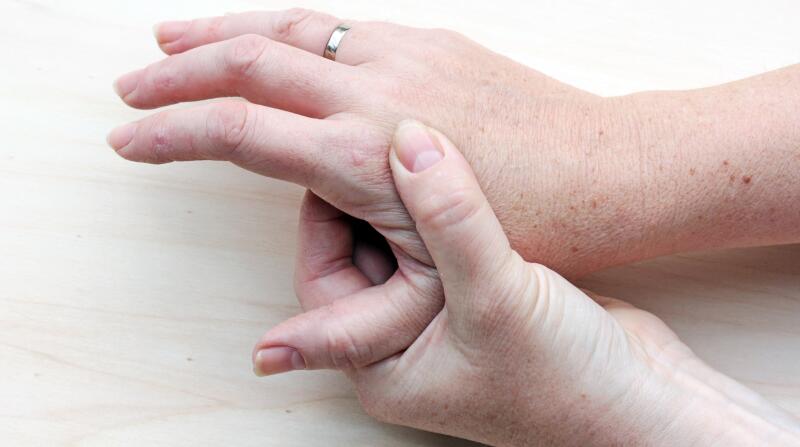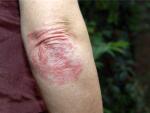4 Signs Your Psoriasis Treatment Isn't Working

Medically Reviewed By William C. Lloyd III, MD, FACS
Written By Marijke Vroomen Durning, RN on March 26, 2021
-
 Not all psoriasis treatments are created equal.Psoriasis, an autoimmune disease that affects the skin, can be tricky to treat. We don’t know exactly what causes psoriasis, but we can treat the symptoms, which include build-up of skin cells causing red, itchy painful patches (called plaques) to form. Patients may try topical creams and ointments, oral immunosuppressants, biologic medications, and light therapy to manage the disease. However, every patient responds differently to each treatment option. On top of that, even if one treatment works, its efficacy may decrease with time. This is why it’s important that psoriasis patients stay mindful of their symptoms. If you’re experiencing any of the following issues, it may be time to try something new.
Not all psoriasis treatments are created equal.Psoriasis, an autoimmune disease that affects the skin, can be tricky to treat. We don’t know exactly what causes psoriasis, but we can treat the symptoms, which include build-up of skin cells causing red, itchy painful patches (called plaques) to form. Patients may try topical creams and ointments, oral immunosuppressants, biologic medications, and light therapy to manage the disease. However, every patient responds differently to each treatment option. On top of that, even if one treatment works, its efficacy may decrease with time. This is why it’s important that psoriasis patients stay mindful of their symptoms. If you’re experiencing any of the following issues, it may be time to try something new. -
 1. You’re dealing with itchy skin.Itching affects up to 90% of people with psoriasis. If the affected areas of your skin don’t stop itching or have started itching again (even if there aren’t any signs of psoriasis plaques or spots), it could mean the medication or treatment isn’t working. Itching occurs because the skin cells are building up on the skin’s surface and instead of falling or sloughing off, as they would normally, these skin cells stay on the skin and cause irritation.
1. You’re dealing with itchy skin.Itching affects up to 90% of people with psoriasis. If the affected areas of your skin don’t stop itching or have started itching again (even if there aren’t any signs of psoriasis plaques or spots), it could mean the medication or treatment isn’t working. Itching occurs because the skin cells are building up on the skin’s surface and instead of falling or sloughing off, as they would normally, these skin cells stay on the skin and cause irritation. -
-
 2. Red patches return (or never left).Red patches, or plaques, are a tell-tale sign of psoriasis. If they don’t go away or if they return after a while, your treatment may not be effective. The red scaly patches appear when the skin cells build up on the skin’s surface. Typically, these cells fall off naturally, but if your psoriasis is active, the cells will stick on the skin and cause whitish or silver scales that later develop into red patches, which can crack and bleed.
2. Red patches return (or never left).Red patches, or plaques, are a tell-tale sign of psoriasis. If they don’t go away or if they return after a while, your treatment may not be effective. The red scaly patches appear when the skin cells build up on the skin’s surface. Typically, these cells fall off naturally, but if your psoriasis is active, the cells will stick on the skin and cause whitish or silver scales that later develop into red patches, which can crack and bleed. -
 3. You notice changes in your fingernails or toenails.Some types of psoriasis affect your fingernails and toenails, causing pitting (holes) or deformation of the nails. They can also become discolored (yellowish) or start lifting off the nail bed. If you see changes in your nails, you may need a different or stronger type of psoriasis treatment. If you are using creams, your rheumatologist may prescribe an oral medication or light therapy. If you’ve tried these with no success, it may be time to try a biologic, which may be more effective.
3. You notice changes in your fingernails or toenails.Some types of psoriasis affect your fingernails and toenails, causing pitting (holes) or deformation of the nails. They can also become discolored (yellowish) or start lifting off the nail bed. If you see changes in your nails, you may need a different or stronger type of psoriasis treatment. If you are using creams, your rheumatologist may prescribe an oral medication or light therapy. If you’ve tried these with no success, it may be time to try a biologic, which may be more effective. -
 4. You’re experiencing treatment side effects.If you’re having a bad or uncomfortable reaction to your treatment, you may be less likely to take the treatment regularly, which could make the treatment less effective overall. If you are experiencing side effects, speak with your pharmacist or doctor about them. Sometimes a change in the time you take your treatment or how you take it can eliminate the side effects.
4. You’re experiencing treatment side effects.If you’re having a bad or uncomfortable reaction to your treatment, you may be less likely to take the treatment regularly, which could make the treatment less effective overall. If you are experiencing side effects, speak with your pharmacist or doctor about them. Sometimes a change in the time you take your treatment or how you take it can eliminate the side effects. -
 Talk with your doctor.The best thing you can do to manage your psoriasis is be open with your doctor about your experience. Every psoriasis patient is different — as is their clinical course of treatment. If you aren’t happy with how things are progressing, there are many options available that might work better. Finding the right strategy can be a trial-and-error process, but eventually, you’ll find the right fit for you.
Talk with your doctor.The best thing you can do to manage your psoriasis is be open with your doctor about your experience. Every psoriasis patient is different — as is their clinical course of treatment. If you aren’t happy with how things are progressing, there are many options available that might work better. Finding the right strategy can be a trial-and-error process, but eventually, you’ll find the right fit for you. -
4 Signs Your Psoriasis Treatment Isn't Working
















